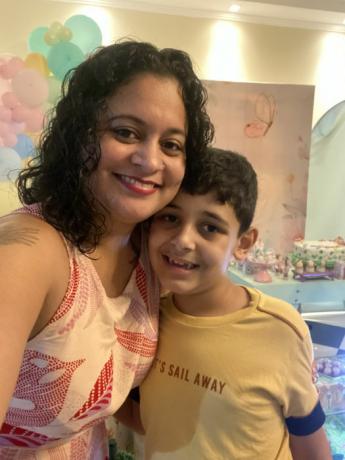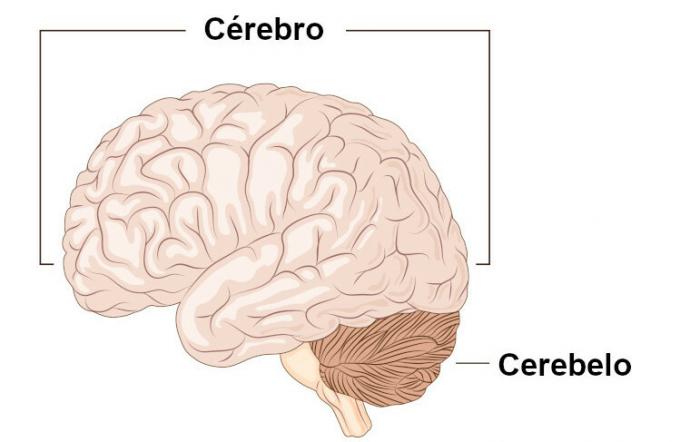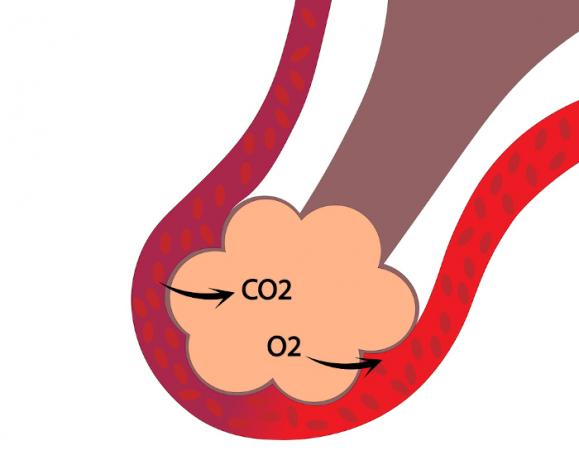Today, June 18, is World Autistic Pride Day. The date was established in 2005 by the North American organization Aspies for Freedom. Since then, the day has been celebrated in Brazil as well.
World Autistic Pride Day was created to promote more information and awareness about the autism and encourage respect for diversity and social inclusion of autistic people throughout Brazil and the world.
Autism is a health disorder much discussed today. Studies on autism are relevant and the subject can be addressed in Biology exams for entrance exams, Enem, competitions and other selection processes.
The subject can also be worked on as a proposal for a theme for essays, such as, for example, this essay bank from Brasil Escola, whose proposal was "Autism: challenges for inclusion".
Numbers confirm the importance of the autism theme. According to a study released in March this year by the US health agency Centers for Disease Control and Preventive (CDC), one in every 36 children born is autistic.
What is Autism?
According to the Association of Friends of the Autistic (AMA), autism or Autistic Spectrum Disorder (ASD) is a disorder of the human development that emerges in childhood, with multiple and variable impact, and that affects areas of communication, learning and language.
Autistic children often have difficulty with social interaction. They may have problems communicating with other people, socializing (making friends and joining groups) and have failures in integrating verbal and non-verbal behavior, for example.
Autistic people also have restricted and repetitive patterns as characteristics, such as: same movements, insistence on routines, interests with abnormal intensities and food selectivity.
Another classic and well-known characteristic of autistic children is that they usually look away: do not look up when called by name or when someone shares an interest with them or points to something.
Know what to study about autism
Do not stop now... There's more after the publicity ;)
diagnosis of autism
The diagnosis of autism is made by a psychiatrist or neuropediatrician, usually before the child is 3 years old. But, the signs may come sooner.
Sara dos Reis, a child psychologist and specialist in applied behavior analysis who has been working with autistic people for four years, she comments that one of the signs that the baby gives that she may be autistic is having little or no eye contact with the mother during feeding. breast-feeding.
"Autism is detected by perceiving the signs that the baby or child offers us. The sooner interventions are started with the child (what we call early intervention), the better the results are in terms of gains in the child's deficits, "she explains.

Thatiane Collet, a behavior analyst, who has also been working with autistic children since 2019, points out that, as the name of the disorder itself says, autism is a spectrum.
"Each autistic patient has peculiar characteristics and with different degrees of impairment. He doesn't need to obey all the characteristics that autistic people have to receive the diagnosis. Everything will depend on the level of support and the degree of commitment of the child. Therefore, no autistic person is the same", says Thatiane.
autism symptoms
Professionals who care for autistic children have listed some classic symptoms or signs about a possible diagnosis of autism spectrum disorder, in addition to little social interaction and difficulty in communication.
See below symptoms of autism:
Exaggerated annoyance with lights, sounds and textures;
Repetitive motor behaviors (flappling, walking on tiptoes, turning, moving trunk and head, etc.);
Resistance to pain above normal;
Repetition of words (echolalia);
Sensory sensitivity to some textures;
Food selectivity;
Nervousness when leaving the routine;
uncomfortable to the touch;
Laughter at times considered inappropriate.
autism treatment
The treatment of a child with autism is carried out by a multidisciplinary team, which is composed of psychologists, speech therapists, occupational therapists, physiotherapists, psychomotor therapists, behavior analysts, music therapists, among others. others.
With the multidisciplinary team ready, the autistic patient receives an individualized teaching program, which focuses on the main deficits and seeks to develop impaired skills.
The behavior analyst Thatiane Collet remembers that, when the treatment of an autistic patient begins, the family and the school also receive guidance from this professional team so that the child has the appropriate intervention in all environments that he/she frequents.
The professional also reinforces that, if necessary, the doctor responsible for the child can also enter with a drug treatment aiming at a better quality of life for the child and his family.
"It's important to get information about Autism Spectrum Disorder to as many people as possible. Access to knowledge will allow for an early diagnosis, which is essential for successful treatment of child, in addition to forming a society that is more tolerable to diversity and with less prejudice", emphasizes Thatiane.

Sara dos Reis Machado, psychologist and specialist in applied behavior analysis explains that, in the treatment of autistic patients, many hours of intervention and the science that obtains the most results within the Autistic Spectrum Disorder is the Applied Behavior Analysis - TAB).
ABA, according to Sara, shows results of improvement in the Intelligence Quotient (IQ), language receptive and expressive, adaptive behaviors, communication, autonomy, socialization and excesses of behaviors.
The psychologist is proud, loving and caring for having the opportunity to work with children diagnosed with autism spectrum disorder for more than four years.
"As long as I can, I will raise awareness and seek more respect, more understanding and empathy for all autistic people. I'm proud to have by my side children who teach me so much and I'm just grateful to have them in my life. Autism cannot be cured, it is understood", says child psychologist Sara dos Reis.
Stories of autistic children
"Autistic children also have many rights"

Nayana Moreira, a site operator from Goiania, found out that her son Arthur was autistic in 2018, when he was 3 and a half years old. "Once we took him to the pediatrician and she noticed that he was repeating words and suggested that we look into it as it wasn't appropriate for his age," she recalls.
The Goiana says that, a few years earlier, she had already noticed some signs of autism in her son, such as, for example: he learned to speak English at the age of 2 and to read at the age of 3. Another sign was him repeating random words he heard from TV commercials and children's cartoons.
"Following cognitive tests, Arthur was found to have supportive level 1 autism, which at the time was known as the term 'Asperger Syndrome' (disused today). Years later, we found out that he also had Attention Deficit Disorder (ADHD) at a severe level", recalls the website operator.
Today, Arthur does four types of therapy: psychology, speech therapy, psychopedagogy and occupational therapy. According to Nayana, these therapies have helped his performance at school and at home a lot.
For mothers who have discovered that their child is autistic, Nayana recommends that the most important thing is to accept the diagnosis of having an autistic child. She reveals that she didn't go through the denial phase, after all she knew there was something different about her son.
Nayana says that being the mother of an autistic child is a daily challenge. For her, society romanticizes autism and this undermines the fight, in addition there is ignorance of the disorder and prejudice. But, she points out that, with a support network, it is possible to offer the most appropriate treatment for an autistic child.
"Today, there are many autistic associations and autistic parents willing to give us support, information, so it's important to seek knowledge, only then can we help our children. The autistic child also has many rights: nowadays, you can put the CID on your RG, have a parking space card for People with Disabilities (PCD), among others. So, we have to seek every right offered to us, recommends Nayana Moreira.
"Welcoming and understanding that we should not go beyond their limits"

Miriã Gonçalves Lima Antonelli is the mother of Enrico, 5 years old. She discovered her son's autism after neurologist relatives alerted him, when he was between 1 year and 6 months and 2 years old, that he had some requirements to have Autistic Spectrum Disorder.
Among the signs that Miriam detected in her son, the following stand out: speech delay and his not being able to maintain eye contact. The diagnosis was closed when, during a consultation with the doctor, the child turned the stroller upside down to turn the wheels and showed no interest in communicating with the doctor.
During these three years of intensive treatment, Enrico averages 20 hours a week of autism treatment. Since then, his mother comments that she got to know a whole new world, discovering, for example, that not all autistic people don't speak, that not all autistic people don't like hugs, that not all autistic people hate hugs noise.
For Miriam, being the mother of an autistic child is an arduous task, which generates anxiety, tiredness and uncertainty. For her, mothers need to learn about autism and its forms of treatment, run after good professionals, aiming at the development of the children and even fighting for them to get treatments of quality.
Miriã knows how to act with her son Enrico in different situations and emphasizes the importance of love with the autistic child.
"I need to welcome my son and understand that he shouldn't cross the line. I must welcome him when he is in crisis, welcome him when he needs help communicating. It is certainly a life of renunciation, but also of love and surrender in its purest form", reveals Miria.
Image credits: disclosure
By Silvia Tancredi
Journalist


